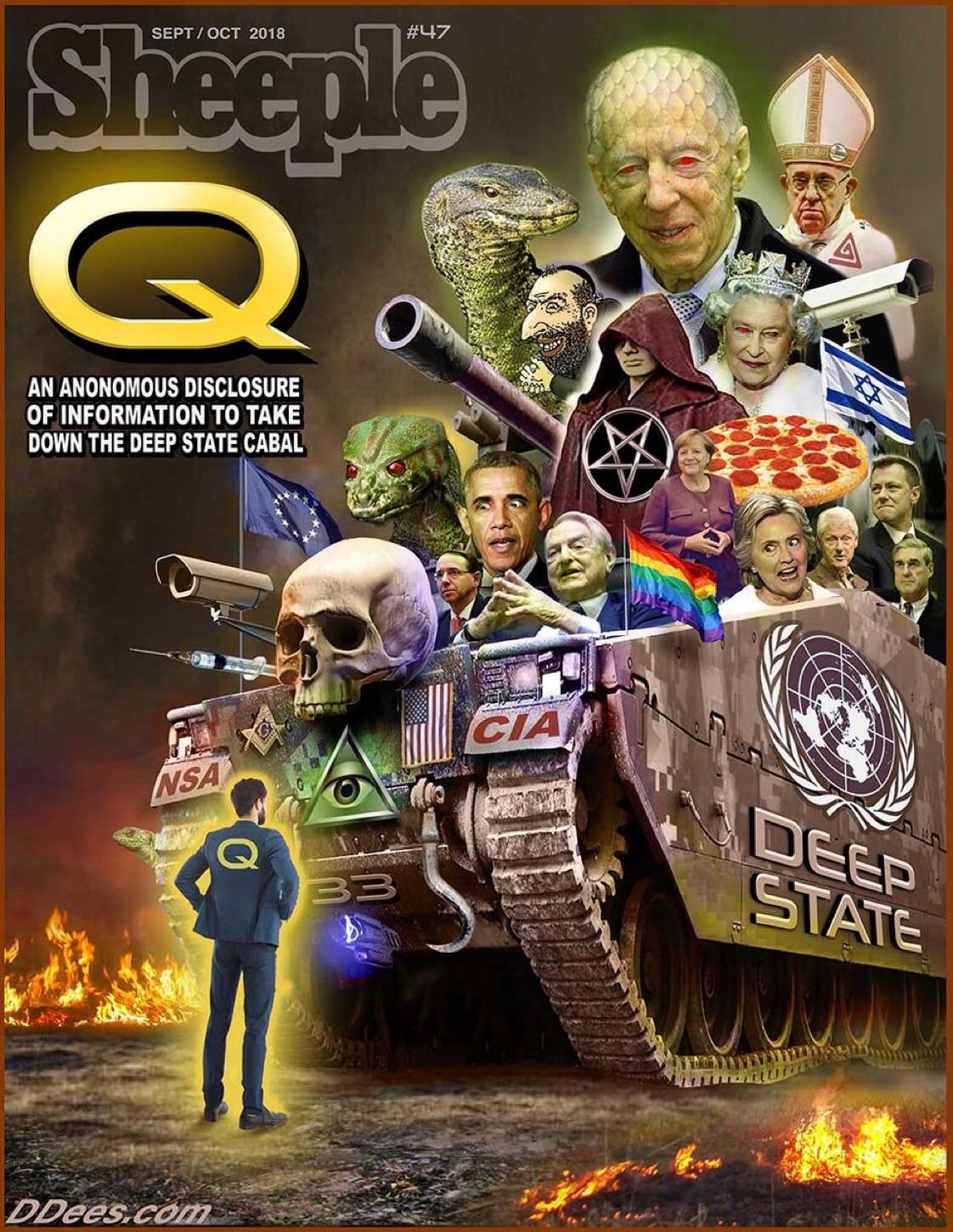
Everyone knew that the media was eventually going to tie their latest censorship hoax – “QAnon conspiracy theories” – back to their earlier censorship hoax of “Russian hackers.”
The evidence?
RT is writing about QAnon.
They are just so bold, these people.
Russian government-supported organizations are playing a small but increasing role amplifying conspiracy theories promoted by QAnon, raising concerns of interference in the November U.S. election.
Academics who study QAnon said there were no signs Russia had a hand in the early days of the movement, which launched in 2017 with anonymous web postings amplified by YouTube videos.
But as QAnon gained adherents and took on new topics – with President Donald Trump as the constant hero waging a misunderstood battle – social media accounts tied to a key Kremlin ally joined in.
In 2019, accounts removed by Twitter and suspected of being controlled by Russia’s Internet Research Agency sent a high volume of tweets tagged with #QAnon and the movement slogan #WWG1WGA, short for Where We Go One, We Go All, said Melanie Smith, head of analysis at social media analysis firm Graphika. The IRA was indicted by Robert Mueller in his election interference prosecution.
Indicted for allegedly posting memes, mind you.
There was no proof they posted memes, and obviously the Mueller team knew that these people wouldn’t come to court, so there was no need to ever prove that they posted memes at all, let alone why posting memes would be illegal.
More recently, Russian government-backed media RT.com and Sputnik have stepped up coverage of QAnon, which began with a false proclamation Hillary Clinton would be arrested for an undetermined reason and now includes theories about child trafficking by Hollywood elites, the novel coronavirus and more.
Alethea Group disinformation expert Cindy Otis, a former CIA analyst, said RT, Sputnik and other Kremlin-backed media have been writing more about QAnon, using it to fit into their broader narrative of: “The U.S. is falling apart, look how much division there is.”
Haha.
Is that supposed to be a “false narrative”?
The country is on fire, literally.
BREAKING: national guard officially deployed on the streets of Kenosha pic.twitter.com/HMSb1MDGj2
— E (@ElijahSchaffer) August 25, 2020
It’s hilarious how mad these people get that Russian-based English websites exist, even as the US State Department is running virtually the entire media apparatus of the Slavic world.
After Twitter banned thousands of QAnon accounts last month, RT.com predicted the move would backfire by directing more attention to the cause, adding that “it gave QAnon followers the validation they craved.”
Last week, it ran a similar article after Facebook removed about a third of QAnon groups and restricted the other two-thirds.
…
The articles have fallen short of full-throated support, and others have been critical. But they cast QAnon as channeling legitimate outrage.
QAnon followers have taken note and begun to share more content from the Russian outlets, according to Graphika.
In a report released late Monday, it said the QAnon accounts it tracked had posted material from 69 other websites more often than RT stories in 2018.
By earlier this year, RT was the 23rd most commonly shared site in the community. In the month ended Aug. 20, it had climbed to No. 12. here
“Though Russia is only one foreign actor capable of targeting US political audiences through the QAnon community, its history of operations appear to be the most ideologically aligned with the overarching QAnon theory,” the report said. “Russia also appears to have made the most effort to gain credibility within the community thus far.”
QAnon was named by the FBI as a potential instigator of domestic terrorism, and followers have been charged with making a terror threat, murder and other crimes.
Russia is actively interfering with the campaign season in other ways, the government’s top counter-intelligence official said recently, including by disseminating false stories about Joe Biden in Ukraine. Democrats are pressing for the public release of more instances.
Yes, just so you understand fully: when they said “hacking and interfering in the election,” they don’t mean hacking voting booths or something. They mean posting on the internet.
Researchers at Graphika, Stanford University and elsewhere stressed that QAnon for now remains a largely domestic phenomenon. Facebook took down two QAnon networks for coordinated artificial behavior, before its new content restrictions, and neither had Russian connections.
But tracking QAnon has become increasingly tough, Graphika’s Smith said. QAnon backers have moved heavily into other social media groups, helping to organize real-life protests against child trafficking last weekend and getting involved in a pro-police demonstration in Portland that degenerated into violence.
“It’s very difficult to understand what a QAnon account is, versus a Trump supporter’s account versus an anti-vaxxer,” Smith said.
Interestingly, that is exactly what we said when Twitter announced a flat ban on “QAnon accounts.” They were obviously just banning all Trump-supporting accounts. Because even if they wanted to only ban QAnon accounts, there is no way to tell the difference. I gave examples of “Q” and “non-Q” memes, and I can’t even tell the difference.
This whole thing is just an excuse to mass censor normal Trump supporters on social media. They want it all shut down by the election.
All else aside, it sure is something to see the media saying that a group that is holding rallies to stop child trafficking is a threat to society.
